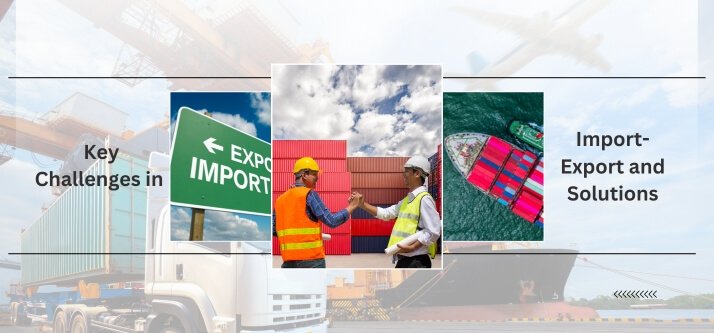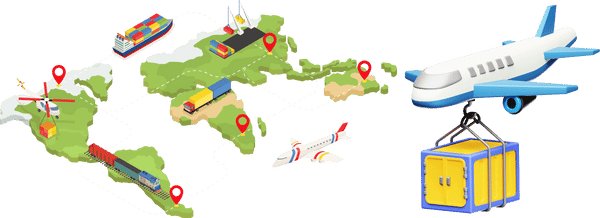
The import-export business presents numerous challenges, from navigating regulations to managing logistics. Recognizing these hurdles is the first step toward success. This blog outlines common challenges faced in international trade and offers effective solutions to overcome them. Learn how to streamline your processes for smoother global business operations :

1. Navigating Complex Regulations
Import-export businesses must comply with complex trade regulations and customs laws. Failure to adhere to these rules can lead to costly fines and delays. To overcome this, stay updated with changes in local and international trade laws. Working with a customs expert can help ensure compliance.
2. Managing Shipping Delays
Delays in shipping are a common challenge, caused by factors like weather, customs, or logistical issues. To mitigate this, build a buffer time into your schedules and work with reliable carriers. Use technology for real-time tracking and communicate proactively with clients to manage expectations.
3. Currency Fluctuations and Risks
Exchange rate volatility can affect the profitability of international transactions. This challenge can be managed by using hedging strategies or forward contracts to lock in exchange rates. Understanding the impact of currency fluctuations helps mitigate financial risks and maintain stable pricing.
4. Supply Chain Disruptions
Disruptions in the supply chain, such as natural disasters or geopolitical issues, can halt or delay trade. Diversify your suppliers and consider alternative routes or logistics options to minimize the impact of these disruptions. Implementing contingency plans ensures business continuity during emergencies.
5. Customs Delays and Fees
Customs clearance issues often lead to delays or unexpected costs. Ensure that your documentation is accurate and complete to speed up the clearance process. Partnering with an experienced customs broker can help avoid customs-related issues and ensure smoother operations.
6. Product Quality and Compliance
Ensuring that your products meet the required quality standards and regulations of the target country is crucial. Regularly audit your suppliers and implement quality control procedures. Partner with local inspection services to ensure compliance with the importing country’s standards.
7. Cultural and Language Barriers
Language differences and cultural misunderstandings can complicate negotiations and communications. Overcome this challenge by hiring translators and cultural experts. Understanding local customs and building strong relationships with foreign partners can prevent miscommunication and foster smoother business dealings.
In conclusion
The challenges of international trade can seem overwhelming, but with careful planning and the right strategies, they can be overcome. Stay informed about regulations and build strong relationships with reliable partners. Managing currency risks, supply chain disruptions, and customs issues can ensure smoother operations. Cultural awareness and quality compliance are key to successful global trade. By addressing these challenges head-on, businesses can position themselves for long-term growth and success in the import-export world.
Phone Number: +91 9099492499 , Email Address: arthhglobal1704@gmail.com

